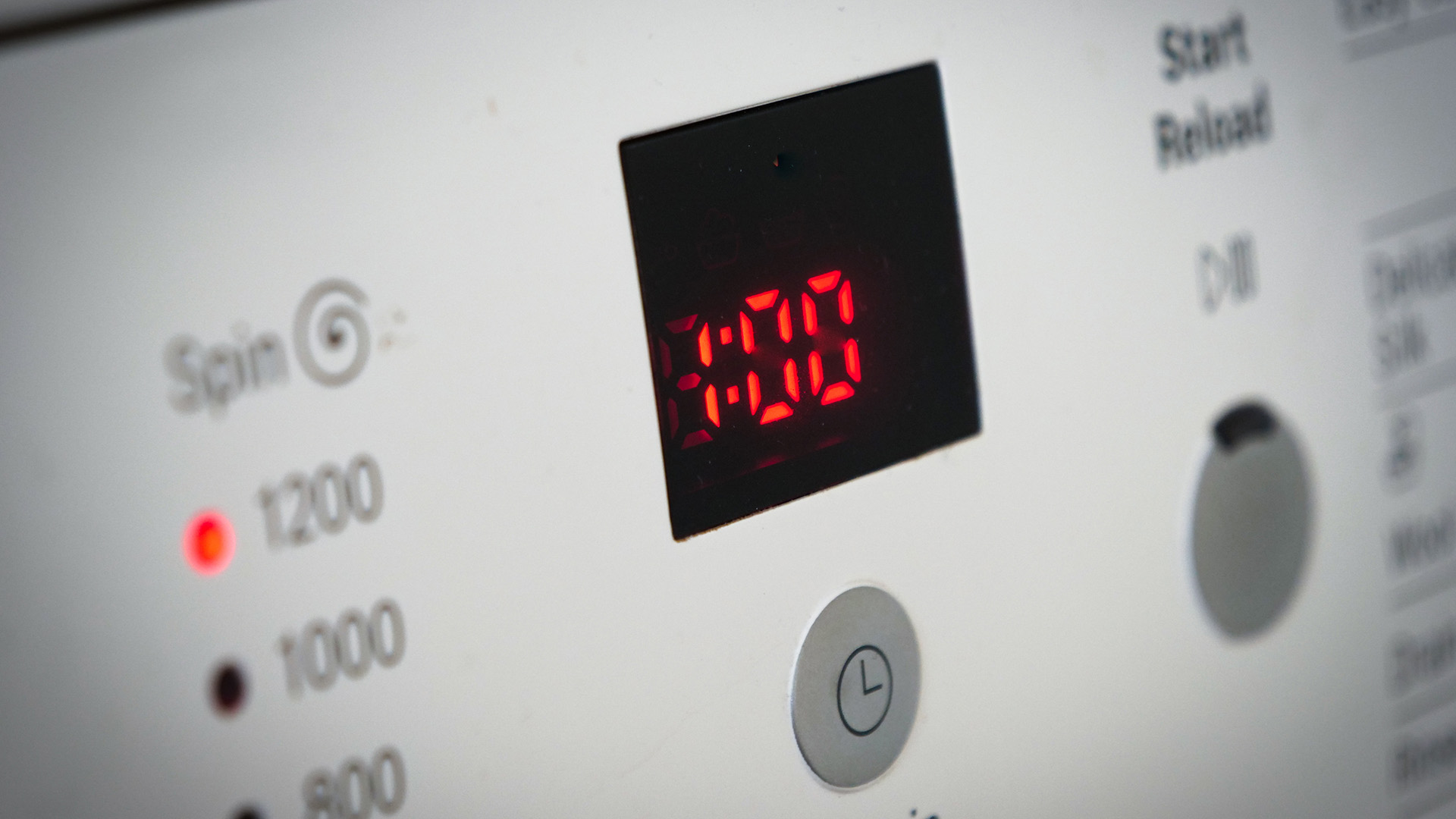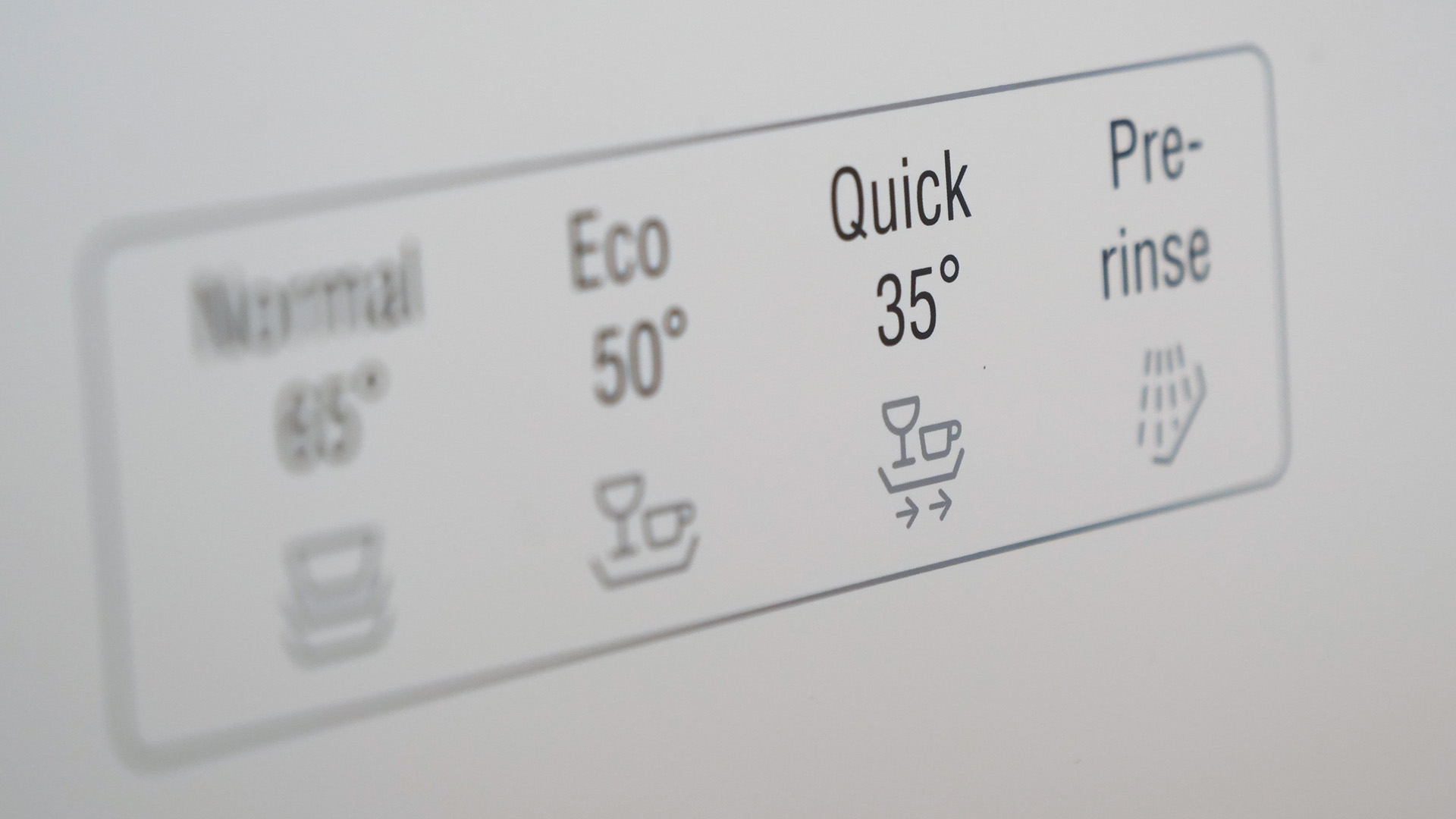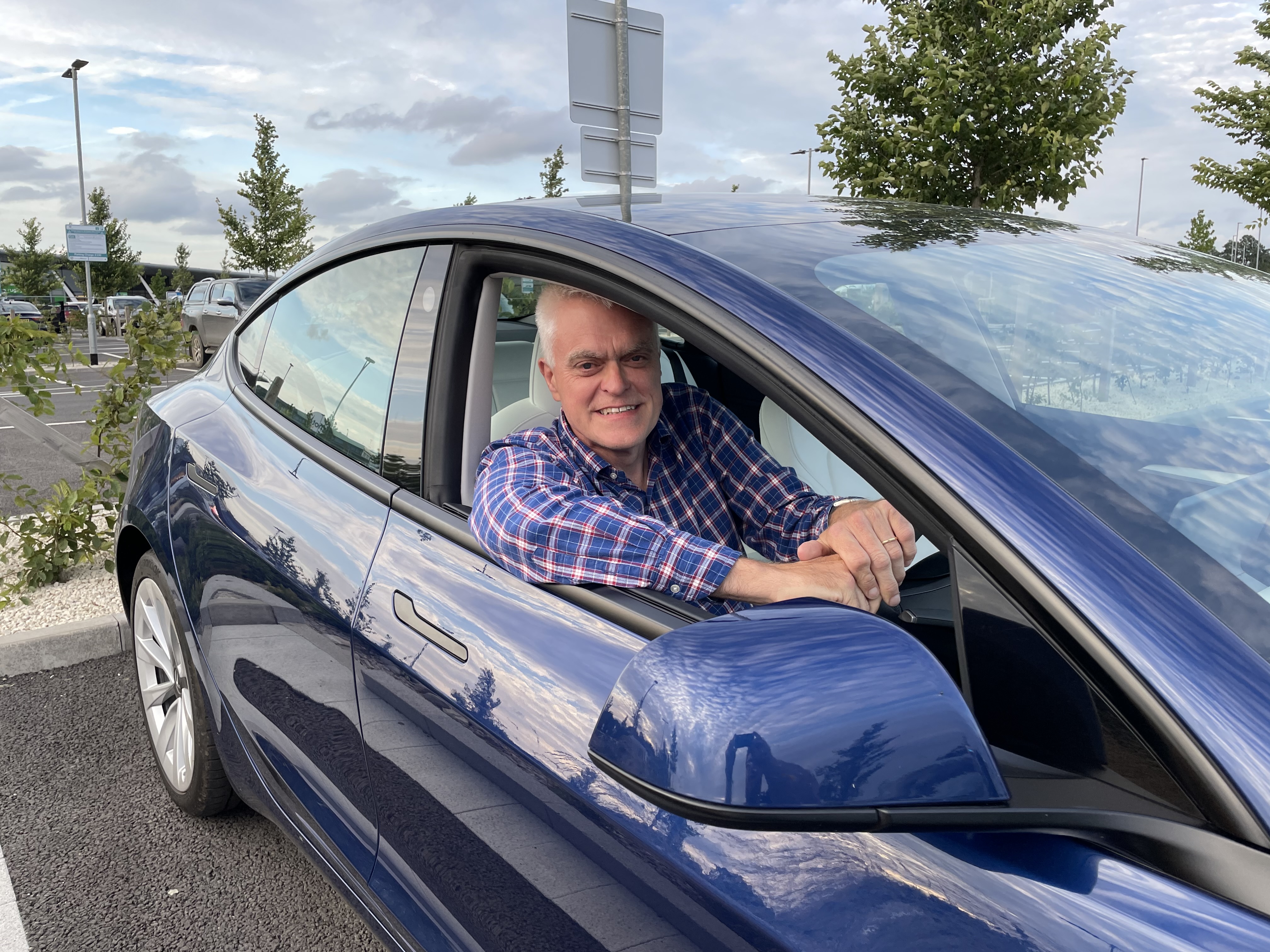I don't have all the time in the world
Jon Bentley wonders why tech is actually getting slower


I’m dreading the day our 17-year-old Bosch dishwasher packs up. It has a handy 35-degree Celsius 30-minute wash that works very well. We often use it when time is short. The latest Bosch dishwashers however don’t have such a program. At their quickest they make you hang around for an hour (and boost the temperature to 40 degrees).
I raised this with a Bosch European product manager at IFA recently. He said the newer programs use less water and are more environmentally responsible and that I should get used to thinking that quick equals an hour rather than thirty minutes. It’s not just dishwashers. New heat pump tumble dryers take longer to dry than traditional, vented or condenser ones, and we recently tested an Indesit washing machine on the telly programme I work for and the normal cotton cycle lasted 4 hours. That’s ridiculous!
The thing is the manufacturers are cornered both by regulations, which set ever higher standards for energy and water use, and customers who are liable to be put off by a poor energy rating and incensed if even the slightest stain or food detritus remains at the end of the cycle. It’s not surprising cycles are getting longer and longer. Time is the one area that gives.

But should it? Forgive me for injecting a cautionary note but fire services normally advise that you shouldn’t operate white goods like washing machines or dishwashers while you’re out or asleep because of the risk of fire. You should be awake and present, keeping an eye out for telltale wisps of smoke and burning smells. With today’s lackadaisical white goods, if you’re of a fearful disposition, you might have to book a whole day in, just to monitor a couple of loads of washing.
Personally, I’ve always been slightly sceptical of this particular piece of precautionary advice; I’d actually prefer to be out if my washing machine becomes a fireball. But if I lived in a flat rather than a standalone house maybe I’d be a little less cavalier and concerned about the threat my machines pose to my neighbours. According to government statistics over 40 house fires a week are caused by faulty appliances, with washing machines and dryers topping the list of guilty tech, and dishwashers in fifth place.
But why are we tolerating ever longer cycles anyway? Perhaps it’s because white goods are simply falling into line with the rest of the tech environment where we’ve all become accustomed to spending an awful lot of time engaged in transferring files, downloading updates, installing them and so forth. And then there’s battery charging. Ever more things seem to need it, from watches to phones and, of course, cars where the traditional 2-minute fill-up is in the process of being replaced by a half-hour quick charge or an overnight affordable one. It’s a whole world of waiting that rewards the patient.
Happily, there are some appliance manufacturers who seem to be bucking the trend. Budget brand Beko proudly boasts its dishwashers have quick 30-minute cycles (and some feature a 45-minute one with a drying phase and automatic door opening). Their energy ratings seem similar to those achieved by Bosch. At least somebody out there understands that time, for all of us, is limited.
Get all the latest news, reviews, deals and buying guides on gorgeous tech, home and active products from the T3 experts
Jon is the main gadget reviewer and presenter for The Gadget Show on Channel Five. He was previously the Producer and Executive Producer of BBC's Top Gear between 1987 and 1999 and had a corner named after him on the Top Gear test track. He launched Fifth Gear for Channel Five and produced the show until 2004. When not presenting Jon enjoys writing. In 2019 Atlantic Books published his first book, Autopia: The Future of Cars, and he contributes regularly to Amateur Photographer magazine.
